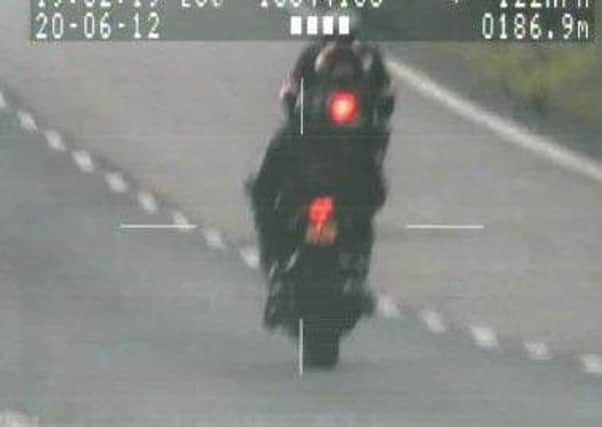Campaign to put brakes on speeding gains momentum


Today sees the fourth annual conference of the national 20’s Plenty campaign, which aims to make us all more considerate drivers. In light of statistics for West Yorkshire its supporters have much work to do.
According to figures provided by the West Yorkshire Casualty Reduction Partnership, the number of people speeding and running red lights has rocketed in the last three years from 70,355 in 2010 to 109,979 in 2012
Advertisement
Hide AdAdvertisement
Hide AdLast week Justice Minister Damian Green signalled he wanted to see more dedicated traffic courts across the UK. One such court has already been trialled in Huddersfield – it deals solely with low level traffic offences in a bid to stop such cases clogging up the rest of the legal network.
The drive to reduce the overall speed of drivers in residential areas is also gaining momentum. In Leeds, the council is coming to the end of a review of speed limits on all its major roads, assessing each on its merits. In most cases, where possible, limits are being (or have been) reduced, often to under 30mph.
Thanks to a relaxation in legislation, councils now have more freedom to implement traffic calming schemes on residential streets. The result is they are no longer required to install speed humps and chicanes but can simply post a lower speed limit. It seems that, like smoking, speeding is next on the list of anti-social activities to be targeted by social reformers.
Of course, that doesn’t stop cases such as that of motorcyclist Andrew Kelly, 37, from Pudsey, Leeds, who was caught on a mobile camera near Selby on June 20, 2012 travelling at 122mph. He was jailed for eight months earlier this year.
Advertisement
Hide AdAdvertisement
Hide AdGoing faster might be irresistible to some but according to Rod King, founder of 20’s Plenty, it doesn’t get you there any quicker.
“Going faster does one thing,” says the 63-year-old grandfather-of-five. “It gets you to the next line of traffic a few seconds earlier.”
The IT consultant explained how he founded the campaign which looks set to transform the way we view and use our cars: “I’d been at a place called Hilden in Germany and I found out a quarter of their ‘in town’ trips were by bicycle and the way they achieved that was by reducing the speed limit from 30mph to 30kmh, which is about 18mph. That got me thinking.
“We spend an awful lot of money in this country trying to encourage people to get out of their cars and use bicycles and walk and I just thought we had it the wrong way around – that all we really needed to do was to reduce the speed limit, as they had done in Hilden in the 1990s.
Advertisement
Hide AdAdvertisement
Hide Ad“Driving slower is not just about saving someone’s life – that’s a big part of it, of course, but it’s also about making a decision that you are going to be a responsible member of society and that you are not going to make a community worse by tearing through a neighbourhood, that you’re going to improve it for everyone.
“People talk about winning the streets back and this is one way of doing that.”
Winning the streets back is a concept which is not lost on Leeds transport boss Councillor Richard Lewis, who has vivid memories of walking to school.
“I only got a lift to school about three times in my whole time there. There’s a fashion to everything and that applies to cars and the way we use them too.”
Advertisement
Hide AdAdvertisement
Hide AdUntil just a few years ago, if the council wanted to introduce a slower speed limit on a road, it had to jump through all manner of administrative hoops and when the scheme was actually implemented, it meant a lot of physical work.
Coun Lewis recalled one such scheme: “There is a traffic calming scheme on Scott Hall Road, near Chapeltown Road and the cost of that was almost prohibitive. It used to be very expensive to implement 20mph zones but since they relaxed the rules, we have a lot more freedom.
“We’re trying to discourage people driving kids to and from school all the time. What are we saying to our children by doing that – that they should have no interaction with the outside world? That they should be transported from one sheltered environment (the school) to another (the home)? Is that how we want to bring our kids up?
“One could argue of course that in past the air in the city was a lot less healthy than today but there was more contact with the immediate environment and we’ve lost that today.
“We want people to feel confident to walk their kids to school, safe in the knowledge that cars won’t be tearing down a road at high speeds.”